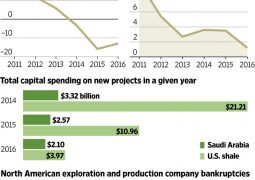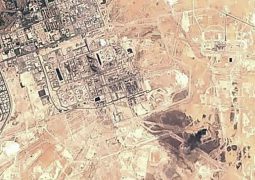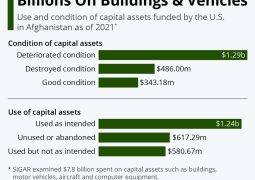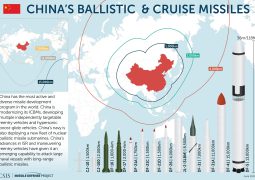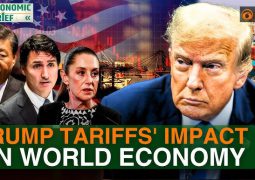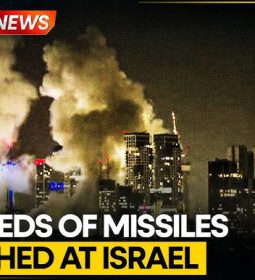‘This Wasn’t a Speech About Islam’
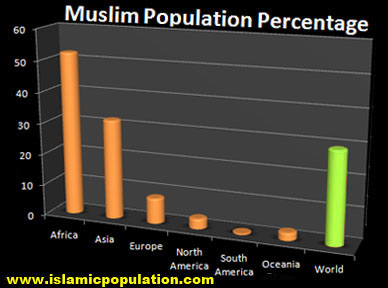
Wajahat Ali: “Assalam Alaikum.” I mean that sincerely. President Obama opened his remarks in Cairo in 2009 — which this speech was obviously meant to echo — with the universal greetings of peace used by more than one and a half billion Muslims.
I retained a morsel of hope that President Trump would use his “Islam” speech in Saudi Arabia as a corrective measure — if not a 180 shift — for his previous anti-Muslim statements, and his use of Muslims as a political piñata to advance a white-nationalist, anti-immigrant agenda. I hoped he would actually be inspired by the beauty and spiritual depth of our respective religions, Islam and Christianity, specifically using this platform to reach out to Muslims through shared narratives of hopes, verses from the Quran and Bible, personal stories of his positive interaction with Muslims and the rich benefits and contributions of diverse American Muslim citizens.
Of course, I’m not a naïve, wide-eyed idealist and I didn’t drink the Halal Kool aid. I knew the bar was exceedingly low, so all Trump would have to do is stay on script, not say anything egregiously offensive and it would be considered an “improvement.” Which it was.
Mustafa Akyol: Greetings — or salaams, too! I watched the speech in Riyadh, Saudi Arabia, from a not-too-distant place: Istanbul. I agree that it definitely did not come out as advertised.
A “speech on Islam” could have included some references to the faith, an acknowledgment that Islam is a great religion with values in common with Judeo-Christianity, and with a history of pluralism and tolerance. A “speech on Muslims” could have also been richer, with perhaps examples of how Muslims have contributed to the world, including to American society. This was a more modest, narrow and pragmatic speech, mostly appealing to Muslim leaders — in fact, only Sunni ones — for more cooperation against terrorism. But given Mr. Trump’s earlier views on Islam, it could have been worse!
Wajahat: Yes, I was curious about which Trump we would see: the same Trump who advanced a Muslim ban and said “I think Islam hates us”; or the pragmatic realist who gladly participates in the Saudi sword dance, curtsies for King Salman for an award, and jettisons all the “radical Islamic terrorism” talk in a country that he said was the world’s biggest funder of terrorism.
And let’s not forget that Trump repeatedly mocked Saudi Arabia throughout the campaign. During his third debate with Hillary Clinton last October, he scolded her: “You talk about women and women’s rights. These are people that push gays off business — off buildings. These are people that kill women and treat women horribly, and yet you take their money.” Well, he just signed several lucrative deals with the Saudis.
Mustafa: Trump seems willing to take a realpolitik approach that’s unconcerned with the “domestic affairs” of other nations, including human rights violations. This is music to the ears of most iron-fisted leaders, including those in the Middle East. In Turkey, there’s another important speech today: by President Recep Tayyip Erdogan, who is formally assuming back the leadership of this party. Pro-Erdogan conservatives in Turkey, who would normally be offended by Trump’s statements on Islam, love him out of a kind of loyalty to a “populist alliance,” so they don’t criticize him.
Wajahat: Mustafa, I think we can agree that one consistency for a thoroughly inconsistent Trump presidency is his love affair for authoritarian leaders: Erdogan in Turkey, Abdel Fattah el-Sisi in Egypt, Rodrigo Duterte in the Philippines, and now the Saudi royal family.
This is, I believe, one of the most troubling aspects of this speech and the shift in American policy under Trump and Secretary of State Rex Tillerson — a complete abandoning of even paying lip service to civil liberties, free press, human rights. Our foreign policy no longer seems guided by even the pretense of these American values. We know that governments like Saudi Arabia and Egypt use terrorism as an excuse to crack down on all opposition and political participation. (Look at the Muslim Brotherhood in Egypt, for example.) And we know that a lack of economic opportunities, political freedoms and human rights are what create conditions for extremism to thrive in Middle East. Oh, the irony!
Mustafa: That is all true. But to his credit, Trump put this realpolitik in an acceptable format: “We are not here to lecture.” That sounds good to a lot of people in the Middle East. Sometimes Western preaching of human rights, when it’s wrapped up in self-righteousness, can backfire.
Still, the current alternative — a United States that says, “I don’t care about what autocracies do to their people, as long as they serve my interests” — is really bad for the world. It is even bad for the United States’ interests in the long run.
Wajahat: Trump said he was in Saudi Arabia to “offer partnership based on shared interests and values.” Well, what do you see as the shared interests and values for the United States and the Saudis since we seem to agree that clearly it isn’t human rights?
Mustafa: The “shared interests and values” in this case seem to be twofold: Let’s fight the terrorists, like the Islamic State and Al Qaeda. And let’s do business. None of these are wrong, of course. But there is also the problem of human rights violations in regimes such as that of Saudi Arabia — or Egypt, or elsewhere. As I understand, Trump’s message is, “we don’t care about that part.” But is this what the United States really stands for? It is up to the American people, of course, but I would hope to see some more aspiration to help make the world a better place.
Mustafa: I will say, though, that there were things I liked in Trump’s speech. I appreciated that he pointed out that Muslims have borne the brunt of the pain and death and murder. And that 90 percent of terrorism’s victims are Muslim. It’s a point that Obama also made, but it’s a good one, and Trump’s base might not have been aware of it. He also mentioned the suffering of Christians, which is a very serious and important issue in the region.
Wajahat: It was great to seeing so many women at the speech, right? O.K., pardon the sarcasm. This might seem harsh but viewing the optics of this entire surreal weekend I call it a beautiful marriage of ugly hypocrisy. There’s opulence, wealth, sword dances, halal meat, bling, jets, fawning and courtship. Yet both sides, Trump and Saudi, are perfectly able and willing to jettison their alleged positions, as defenders of American values and “Sunni Islam,” for the sake of advancing selfish personal and political agendas.
Mustafa: Again, I will be the optimist here. It is actually helpful, in my view, that American people, especially those who voted for Trump, see their president and his family happily hanging out with all the images they may typically see as scary: Arabic inscriptions on green flags, recitation of the Quran, Arab men with swords,
For merely visual purposes, it is better that Trump appears in this conservative Muslim setting, rather than staying away from it.
Wajahat: Here’s to low bars and even lower expectations! Believe me, I am also an optimist. I have babies so it’s obligatory. But I remain worried by the very real consequences of somehow promoting this fight against extremism in such narrow terms.
Trump was playing particularly to not just his Saudi hosts but the other Gulf Arab countries: Kuwait, the United Arab Emirates, Qatar, Bahrain and Oman. Shared interests with these Muslim countries include limiting Iran and its influence in Syria, Lebanon and Yemen. Also, a very shared interest in promoting lucrative oil and arms deals.
But these countries don’t represent Sunni Islam — or even the majority of the Muslim population. The majority live in Indonesia, South Asia, Egypt, Turkey, Nigeria. And it’s important to note that Saudi Wahhabism, a deeply limiting, harsh and narrow vision of Islam, is rejected by the majority of Sunni orthodoxy, even though the Saudis’ wealth has allowed them to export it through text books, mosques and preachers.
Mustafa: This whole meeting looked like a “Sunni international,” in which the main non-Sunni power in Muslim world, Iran, was bashed by both the American President and his Sunni hosts. This is not going to help anything other than adding to the sectarian divide. It is not fair, either. Iran has lots of sins to account for — including its cynical support for the bloody regime of Bashar al-Assad in Syria. But most radical Islamist terrorists in the region are Sunni, not Shiite. In fact, in terms of their theology and jurisprudence, they are much closer to Saudi Arabia than Iran.
Wajahat: Trump just poured gallons of Saudi oil on the burning fires of sectarianism with this speech. So reckless! Don’t get me wrong, I think both sides, Saudi and Iran, are bad for using the Middle East as their sectarian playground. But we must be fair: Sunni extremism has far out exceeded the sins of Iran, which is guilty of abuses in Syria, Lebanon and support of Houthis. But what’s happening in Yemen is a humanitarian crisis, a “sin,” if I can use Trump’s religious language, fueled by Saudi Arabia.
That speech could have been written by a Saudi public relations firm! It inelegantly used religious language not to bridge the divides or unite Muslim communities through shared values and principles, but instead by political and economic interests of Saudi Arabia and its allies, and the Trump administration.
Mustafa: All in all, this wasn’t a speech about Islam. It was all about terrorism and the Middle East. Trump did not say anything significant about Islam as a religion and civilization. The whole point was that there are terrorists in the Middle East that we all should eradicate — and the United States selling “beautiful weapons,” by the way, to help that effort.
In my view, the only audience this speech can help is Trump supporters back in America. They can realize that the Islam-is-the-enemy approach they expected to see from a “politically incorrect” president is simply incorrect, and now even Trump sees this fact and acts accordingly.
Wajahat: He tried to appease his base by calling for Saudi Arabia to “Drive them out,” but by dropping his big stick instead for a golden Saudi necklace. He wants to combat extremism by supporting authoritarian regimes that snuff out the very same Muslim men and women who are deprived of potential futures.
- Previous In Saudi Arabia, Trump Reaches Out to Sunni Nations, at Iran’s Expense
- Next President Donald Trump’s Visit to Western Wall Highlights Differences With Israel



